Parkland victims remembered four years on as hero’s widow opens up about the trauma
Chris Hixon was murdered along with 16 other people in the mass shooting at Marjory Stoneman Douglas High School on Valentine’s Day 2018. His widow Debbi Hixon tells Rachel Sharp how she hopes the sentencing trial of his killer will finally enable her family to start to grieve

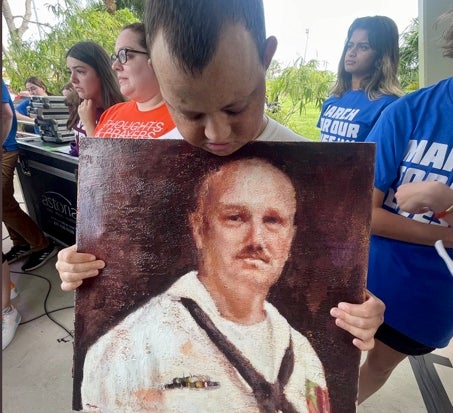
Your support helps us to tell the story
From reproductive rights to climate change to Big Tech, The Independent is on the ground when the story is developing. Whether it's investigating the financials of Elon Musk's pro-Trump PAC or producing our latest documentary, 'The A Word', which shines a light on the American women fighting for reproductive rights, we know how important it is to parse out the facts from the messaging.
At such a critical moment in US history, we need reporters on the ground. Your donation allows us to keep sending journalists to speak to both sides of the story.
The Independent is trusted by Americans across the entire political spectrum. And unlike many other quality news outlets, we choose not to lock Americans out of our reporting and analysis with paywalls. We believe quality journalism should be available to everyone, paid for by those who can afford it.
Your support makes all the difference.This article was originally published on 15 July 2022, three days before Nikolas Cruz’s sentencing trial began. On 13 October, a jury sentenced Cruz to life in prison.
Last Thursday, Debbi Hixon should have been celebrating her 32nd wedding anniversary with her husband.
Instead, she was preparing herself to come face to face with his killer in court.
On 14 February 2018, Chris Hixon was murdered along with 16 other people in the mass shooting in Marjory Stoneman Douglas High School in Parkland, Florida.
More than four years later, Nikolas Cruz is finally set to appear in court for his sentencing hearing where a jury will decide if he should face life in prison or death for the heinous killings.
Debbi hopes the trial can finally help her family begin the grieving process.
“I try to explain to people when they say ‘how are you doing on the grieving process?’ that I don’t think – until we get to the other side of the trial – any of us have even got to the true start of the grieving process,” she tells The Independent.
“We live it every day. It’s a movie that runs in my head all the time.
“I don’t even know if we will have closure at the end of it but it’s just been constant anticipation as we knew that we would have to see him in court and see him on TV.
“So I’m cautiously optimistic that it’s starting – I’m not glad but we can’t get to the end until it starts.”
For Debbi and her two sons, “everything changed” that day when her husband and their father was killed.
“Everything changes when that happens,” she says.
“For me, personally, I spent more than half of my life with Chris being my life. I talk to him every day. I do the best I can and sometimes that’s better than others.
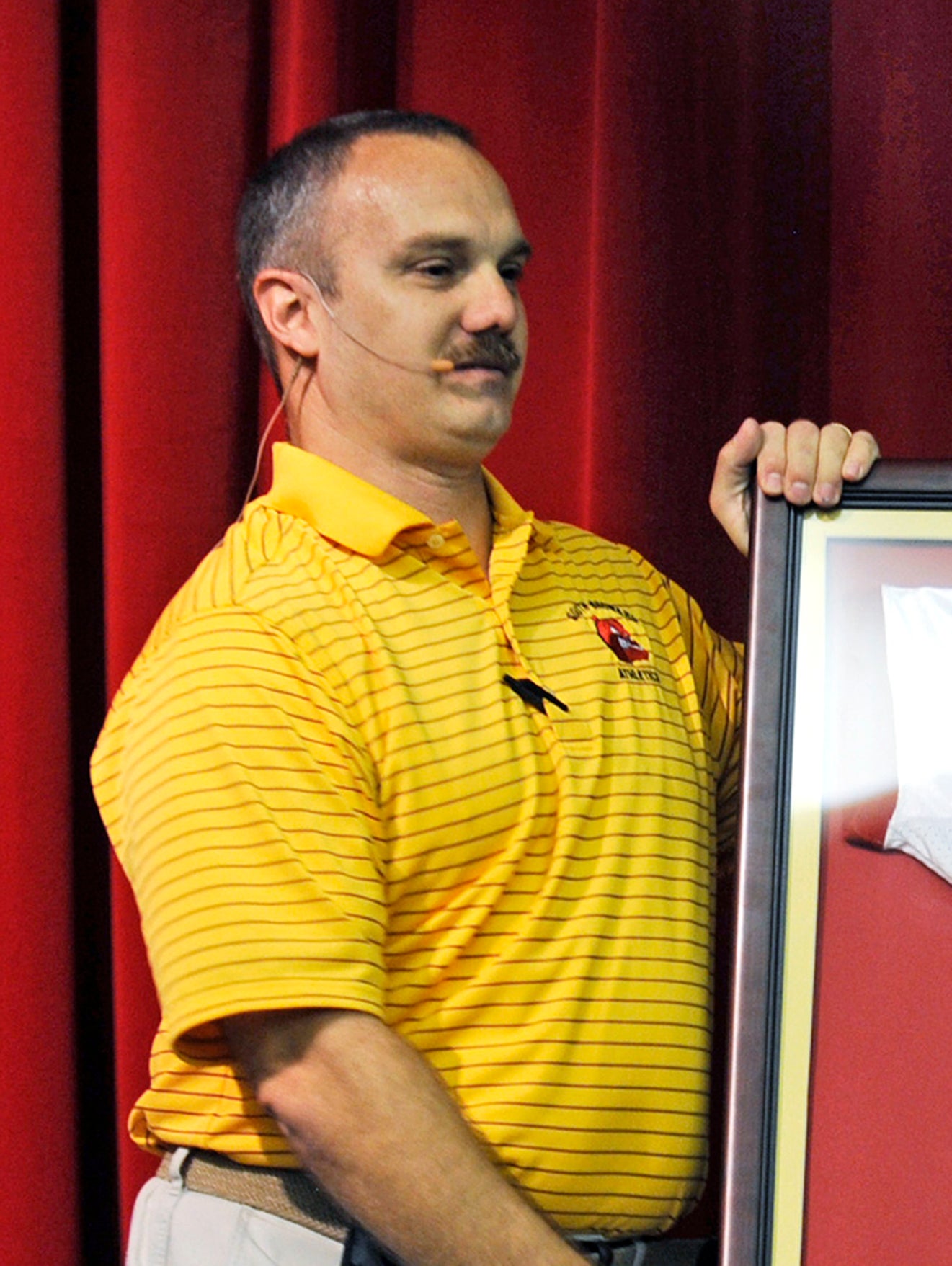
“It’s everything – how we eat dinner, what vacations we have, all that stuff is different now as we don’t have that family time.
“It’s very hard to celebrate the holidays as Chris did the cooking. July 4 was our favourite holiday and we would buy hundreds of dollars of fireworks and spend the night setting them off. This year I didn’t even get one sparkler.
“We’re struggling to make new traditions without him in it but we don’t want to either as we want him to be here.”
She adds: “And it’s all that trauma that goes along with it. Every little thing makes you nervous now.”
As an educator herself – working in the same school as her husband in Broward County before he took a new job at Marjory Stoneman around five years before the shooting – it was also hard to return to working at a school in the aftermath.
“It was very hard to go back,” she says.
“I went back to school for a couple of years and I struggled every single day. I have PTSD so bad, I had anxiety attacks which I never had before.”
Their youngest son Corey has Kabuki Syndrome, which means that – although he is now 27 – developmentally he is around eight years old.
All the decisions she and Chris used to make together about caring for their special needs son now lie solely with her.
“That’s scary as I don’t know if I’m making the right decisions,” she says.
Coming to terms with the death of Chris has also been especially hard on Corey, she explains, as he struggles to understand what happened.
“Corey was never physically aggressive but now it’s something we’re struggling with as he’s so angry and doesn’t understand everything and so he takes it out in a physical way which he didn’t do before,” she says.
“We went to the prosecutor’s office as Corey wanted to ask his own questions and be part of the process and that was when I realised that, in Corey’s mind, because Chris died no one else should have because his daddy was protecting them.
“So he asked the prosecutor ‘I thought my daddy was a hero – how come he died trying to save someone and how come other people still died?’ It’s hard for him to process.”
The impact on their youngest son is just one part of what she describes as “the ripple effect” that Chris’ death continues to have on their family.
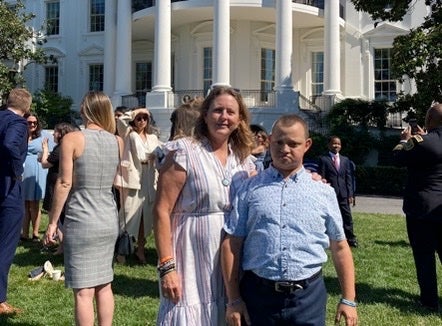
Chris’ mother, who lived with them and saw her first-born son as “her rock”, recently passed away.
“She wasn’t doing well before Chris was murdered but she went into a depression after he was killed,” says Debbi.
“And she recently died as she just lost the will to keep fighting.
“It’s this ripple effect that impacts the whole family because someone was stolen from us.”
The couple’s eldest son Tommy, who followed in his father’s footsteps in joining the military, has also been left without his “friend” and “role model”.
“He now doesn’t have that guidance, his father who he can go to to ask for advice,” she says.
All of this was stolen from the family when Cruz murdered Chris that day more than four years ago.
This October, when Cruz pleaded guilty to 17 counts of murder and 17 counts of attempted murder, he apologised for what he had done.
“I’m very sorry for what I did ... I can’t live with myself sometimes,” he said.
When asked about his comments, Debbi says she doesn’t believe him.
“I don’t want to hear anything that he has to say,” she says. “I don’t believe anything he has to say. I just want him to go to hell.”
As much as being in the courtroom “with that person is definitely stressful”, Debbi is determined to attend as much of the trial as she can so that her husband can be present “through me”.
“At the end of the day I owe it to Christopher to be his representative,” she says.
Going into the trial, she hopes that the jury will give her husband’s killer the death penalty for what he did to him and the 16 other victims.
But beyond the outcome for Cruz, she also feels the trial is important to make the community understand what happened and help stop the “ripple effect” of gun violence impacting more families across the country.
“There’s a lot of lessons to be learned and I hope that people will listen to what happened and that it will change things,” she says.
“I hope it opens peoples’ eyes to keeping staff and students safer as the fact is, school is not a safe place any more. Churches and places of work and schools should always be safe places and that has been ripped away from us and we have to think as a society how we can get back to that.”
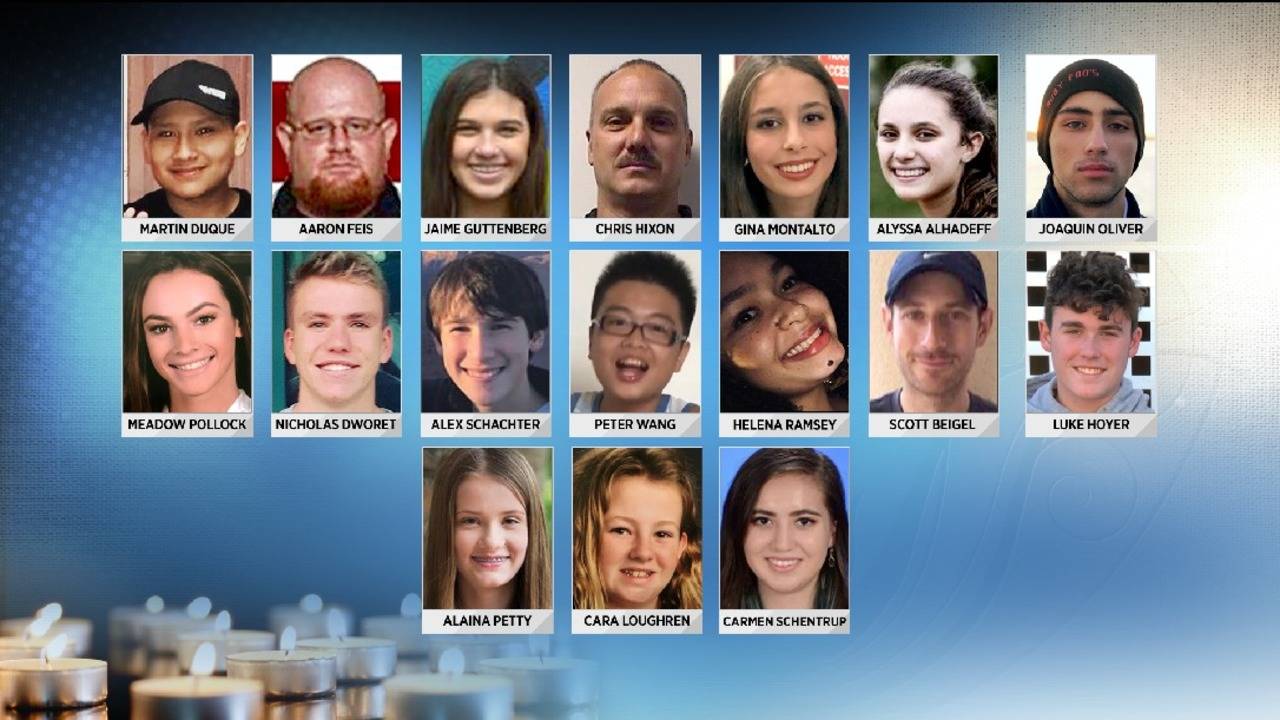
She adds: “Gun violence is as much a health issue as cancer and that’s how we should approach it rather than fight with each other and not solve it.”
But, what’s most important to her, is that the trial is a way for people to hear the stories of each of the people who were killed that day.
“People say the 17 parents and the 17 students [when they talk about Parkland],” says Debbi.
“People don’t know the story of each individual who was lost and, for us who lost them, that’s the story. And it’s frustrating that it isn’t about those who were lost.”
She adds: “All the 14 beautiful children and three adults that were lost. They all have their own story.”
The 14 students killed were: Alyssa Alhadeff, Martin Duque, Nicholas Dworet, Jaime Guttenberg, Luke Hoyer, Cara Loughran, Gina Montalto, Joaquin Oliver, Alaina Petty, Meadow Pollack, Helena Ramsay, Alex Schachter, Carmen Schentrup and Peter Wang.
The three adults killed were: Scott Beigel, Chris Hixon and Aaron Feis.
Here are their stories:
Aaron Feis
Aaron Feis, 37, was the assistant football coach at Marjory Stoneman Douglas High School and was a married father with a young daughter.
He had himself been a student at Marjory Stoneman, graduating in 1999 before he spent his whole career working at the school.
Aaron died running toward the gunfire and throwing himself in front of students to save them.
“He died the same way he lived – he put himself second. He was a very kind soul, a very nice man. He died a hero,” school spokesperson Denise Lehtio said at the time.
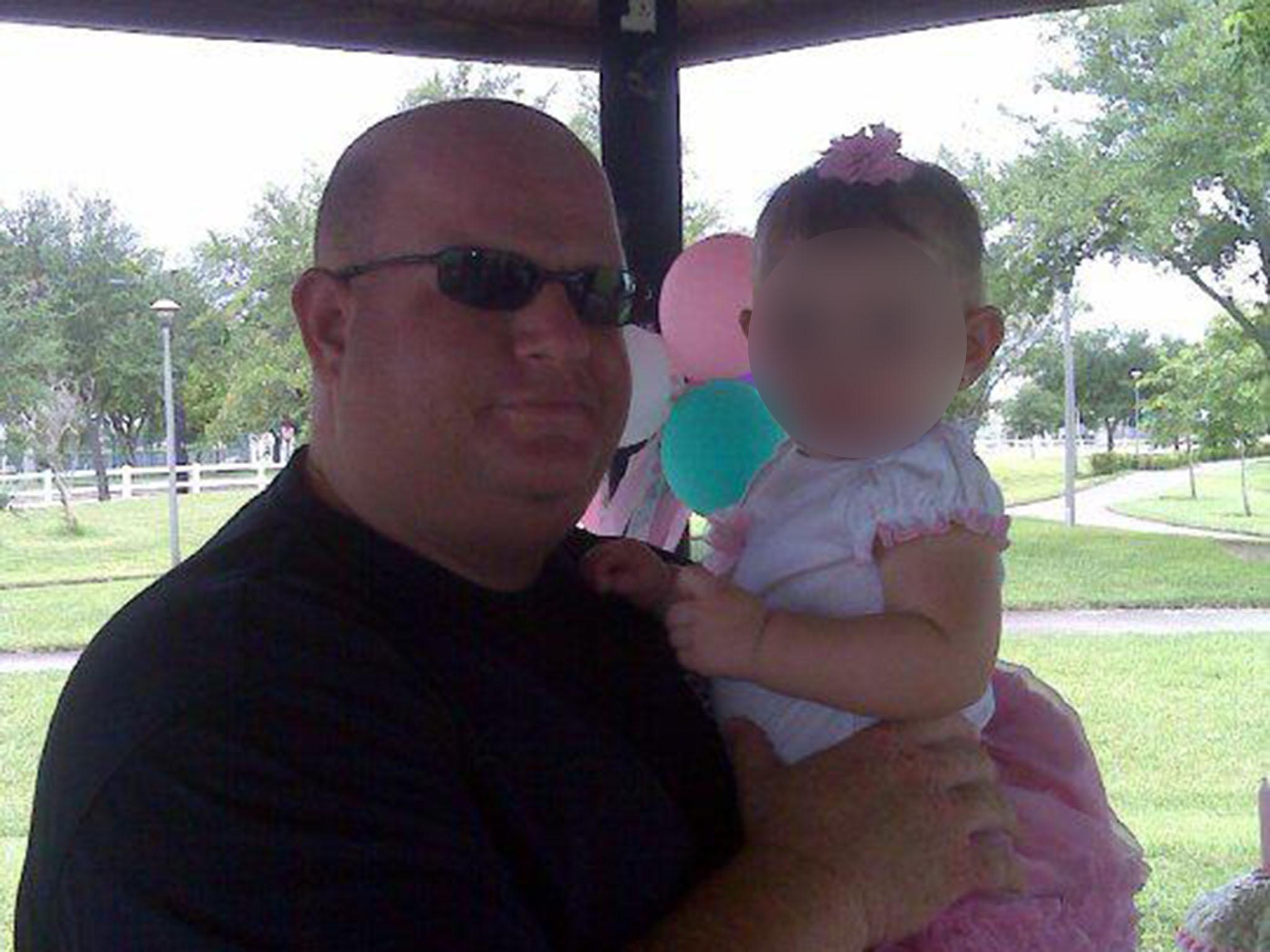
At his funeral, family friend Brandon Corona remembered how Aaron always strived to be the best dad and sometimes worked two or three jobs to support his family.
“He always wanted to be the best dad he could be. He was the epitome of what a hardworking husband and father should be,” he said.
To his students, the football coach was well-loved and he was seen as a “father figure” by many.
Alaina Petty
Alaina Petty was a member of the high school Junior Reserve Officers’ Training Corps (ROTC) program and volunteered in the local community, fulfilling her passion for serving others.
The 14-year-old was in her classroom on the first floor when the gunman opened fire. She was struck by bullets fired through the door.
Her father Ryan Petty told the South Florida Sun-Sentinel in 2018 that Alaina had dreams of joining the military and that he would often take her to the local gun range.
“One of [Alaina’s] favorite things to do was go to the gun range,” he said. “It’s been personally painful that I haven’t been able to talk about the one thing my daughter and I loved to do the most.”
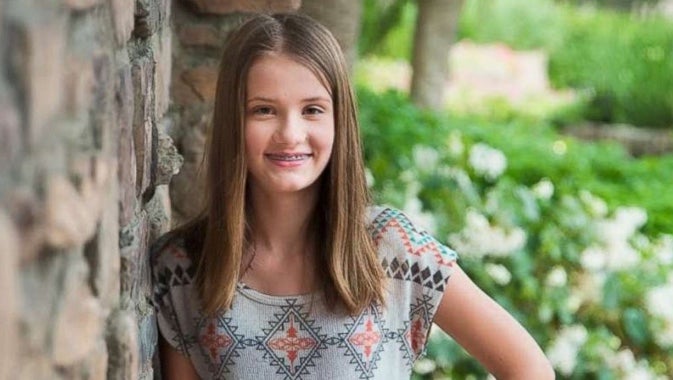
Her ambition to join the military was what led her to become a JROTC cadet and she was awarded the US Army’s Medal of Heroism after her death.
Alaina also volunteered for a program with The Church of Jesus Christ of Latter-day Saints where she helped with the cleanup of the Florida Keys from the devastation wrought by Hurricane Irma in 2017.
“Her selfless service brought peace and joy to those that had lost everything during the storm,” her family said at the time.
When she wasn’t serving the community, she was happiest spending time with her family and friends, her dogs, working hard and making a difference, the family said.
Alex Schachter
Alex Schachter was a freshman who loved to play the trombone and baritone in the Eagle Regiment Marching band in Parkland.
The 14-year-old was one of the first to be killed in the massacre when the gunman shot through the window of his first-floor classroom.
In his eulogy, his father Max told how Alex’s mother had died when he was four and when he had remarried, Alex – along with his older brother – gained two new sisters and a second mother.
“All four kids grew very close over time. They knew they had been through so much individually and now were complete together,” he said.
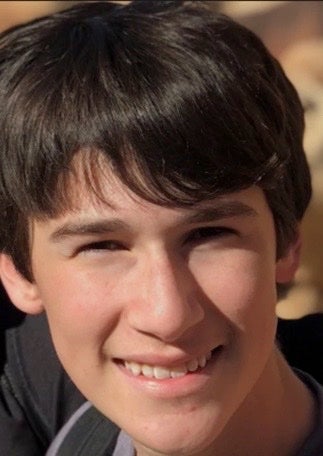
When the family moved to Parkland, Alex was “very happy” and “had so many friends on the block to play with”, he said.
He started playing the trombone in middle school and “excelled”. “He enjoyed it so much that during seventh and eighth grades, he took two band classes so that by the time he got to high school, he would be proficient at playing the baritone during marching band season and the trombone in concert season,” said his father.
Max described his son’s move to high school as a “big shock for him” at first but it “taught him a lot of great life lessons” and he was very proud when he was part of the Eagle Regiment Marching band as it won the state championship in 2017.
Alex was buried next to his mother in the cemetery.
Alyssa Alhadeff
Alyssa Alhadeff was a star soccer player who had dreams of making the US women’s national team as well as going on to be a lawyer.
The 14-year-old was in her classroom on the first floor of the school building when the gunman opened fire through the door and window to the room.
Talented academically, she was an honor student who had, just one week earlier, selected her course load for the upcoming academic Sophomore year.
Born in New York, Alyssa was athletic and began playing soccer at the age of three, going on to play midfield for the school’s Parkland Soccer Club.
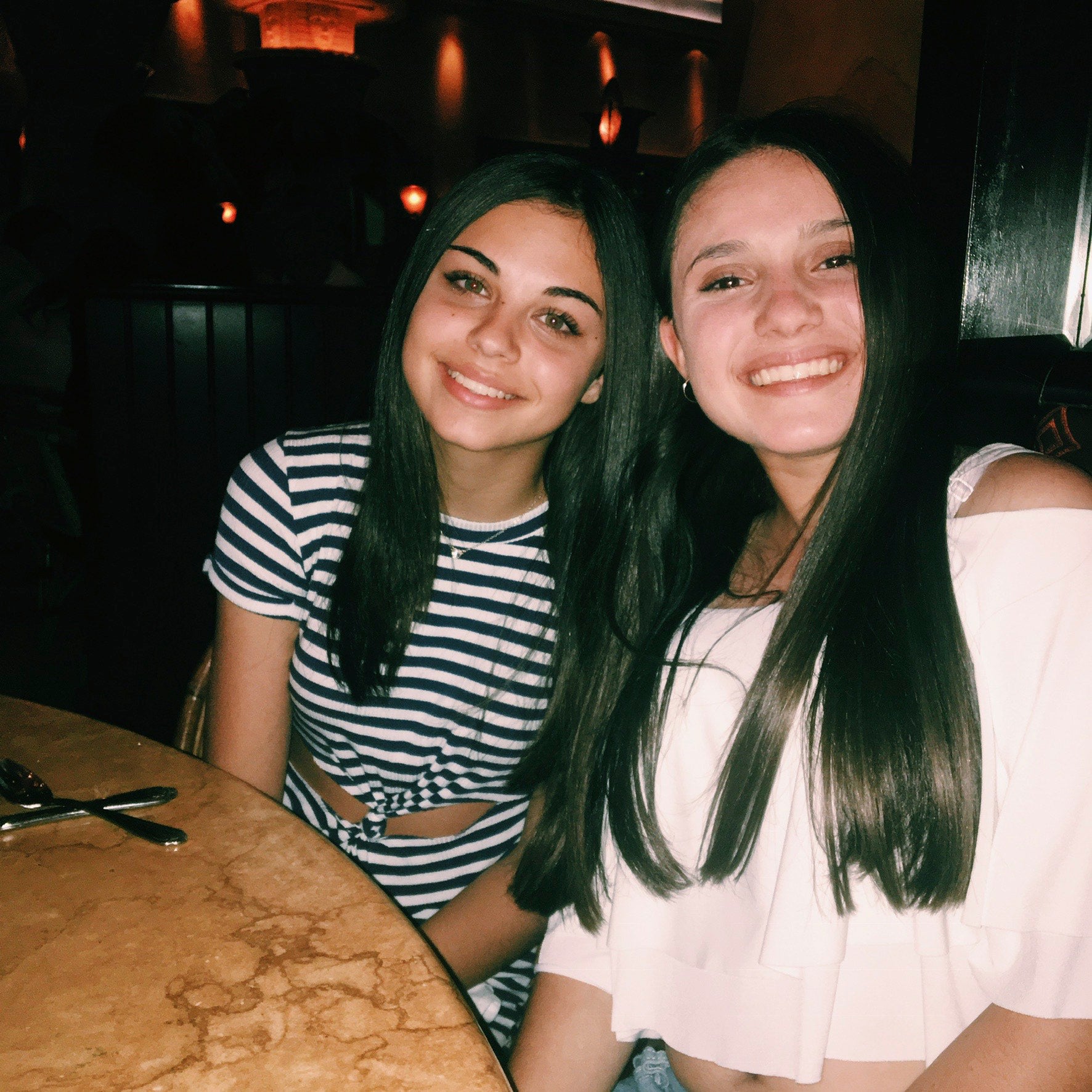
At the time of her death, she was on track to play soccer in college where she also wanted to train to become a professional lawyer.
“Alyssa was the kind of girl whom every mother wants their daughter to be friends with, and whom any parent would be proud of,” her parents Lori and Ilan Alhadeff wrote on Make Schools Safe, the campaign they set up following their daughter’s death to try to make schools safer for other children.
In June 2022, New York Governor Kathy Hochul signed Alyssa’s Law into law in her memory, requiring school districts to consider installing silent panic alarms to help save lives in a school shooting.
Cara Loughran
Cara Loughran was a freshman student with a “beautiful soul” and a passion for Irish dancing.
The 14-year-old was shot and killed in the alcove of classroom doors on the third floor of the school building. As others ran from the gunman, Cara had stayed with fellow student Meadow Pollack who had already been shot.
Cara should have celebrated her 15th birthday one week after the massacre.
She is remembered by friends and family as a bubbly teenager who was happiest when Irish dancing. Her grandparents were Irish and she was very connected to her heritage, often travelling to visit her family back in Ireland.
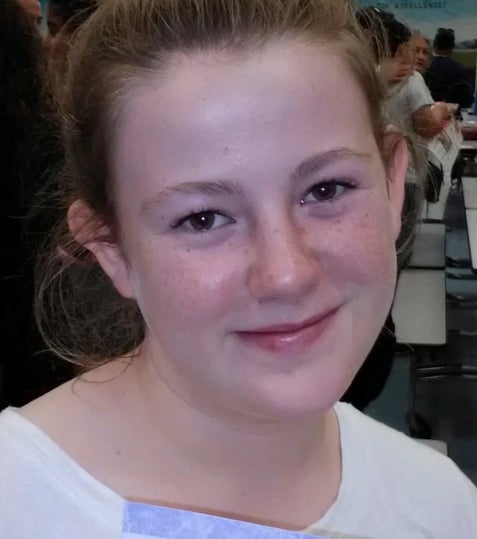
It was her heritage that stoked her passion for Irish dancing and, at the time of her death, she was studying dance at the Drake School of Irish Dance in Coral Springs.
She was also a talented gymnast and loved school, being especially interested in English and history.
Her mother Denise Loughran said her daughter’s favourite place was the beach where she loved surfing and playing in the sun. “She was just a happy, happy person. She enjoyed life. And she walked into the room, and always just lit everybody up,” she said.
Carmen Schentrup
Carmen Schentrup was a National Merit Scholar who had dreams of becoming a medical researcher to find a cure for ALS.
The 16-year-old was sitting in her psychology lesson on the first floor when the gunman shot into the classroom. She died just one week before her 17th birthday.
One day after her death, her National Merit Finalist award letter arrived in the post.
Carmen’s family said at the time that their daughter was “going to change the world”.
A straight-A student, she was choosing between attending the University of Florida or the University of Washington to study medical science once she graduated from Marjory Stoneman.
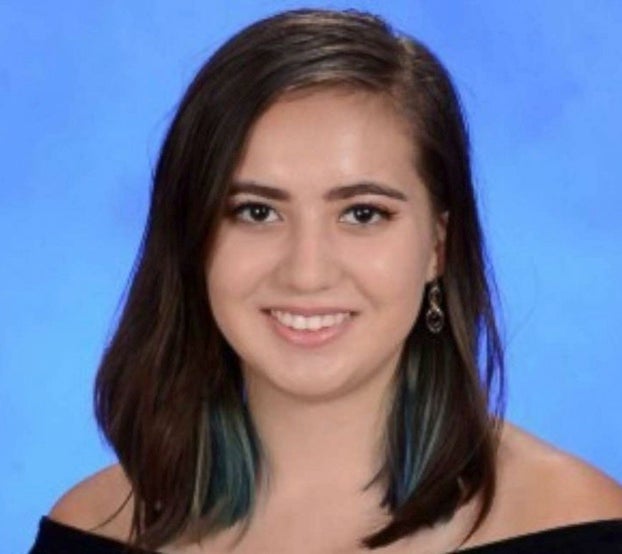
She had lost two people close to her to ALS and so had a bold ambition to find a cure for the nervous system disease. This ambition led her to join the HOSA (Health Occupation Students of America) club at her school and she was about to participate in the 2018 state tournament.
As well as being academically gifted, she “enjoyed spending time with her family and friends, reading, and making others laugh” and “had a silly disposition by nature”, her family said at the time.
“While many people considered Carmen mature beyond her years (she recently joked people had been asking her how she liked college since she was a freshman), she was still a kid at heart,” her family said. “She was silly, playful, and huggable. As parents, we loved that she never outgrew our hugs and would hug us before she went to bed. We miss her hugs.”
Chris Hixon
Chris Hixon was a 49-year-old married father-of-two who worked as the athletic director at Marjory Stoneman Douglas High School.
He was killed when he ran into the school building in the direction of the gunfire. His wife Debbi said she knew instantly that he would have tried to save the students and other staff at the school.
“Chris was always a hero and we knew he’d be in the middle of it,” she told The Independent. “I know him and I know that he would have thought he would run in there and tackle him and get the gun.”
Chris would also joke that “Hixon’s always first on scene”, she recalled.
“If there was something on the [school] radio about a fight, he was alway the person first on the scene,” she said, adding that she is “proud but angry” about his heroic actions that day.

“I’m proud of the fact that he always put others before himself [but] It breaks my heart the way he died,” she said.
Chris had worked at the school for around five years and saw the students “as family”, she said. “It was his passion. He was dedicated. He loved being around his students and working with them,” she said.
Before Marjory Stoneman, he and his wife had worked at the same school in Broward County. Chris had also been in the Navy and worked for years in security.
“Christopher was the type of person who filled the room when he walked into it,” said Debbi. She laughed that he may have come across as arrogant and self-confident but he had a “heart of gold and everyone knew that if they needed anything, they could depend on him”.
Gina Montalto
Gina Montalto was a Girl Scout and member of the school Color Guard with a passion for reading – in particular Harry Potter books.
The 14-year-old was one of the first killed in the attack as she was in the first-floor hallway of the school building when the gunman entered and began shooting.
Gina had joined the MSD Color Guard the previous winter and was also part of the Eagle Regiment when they won the Florida state championships in the fall of 2017.
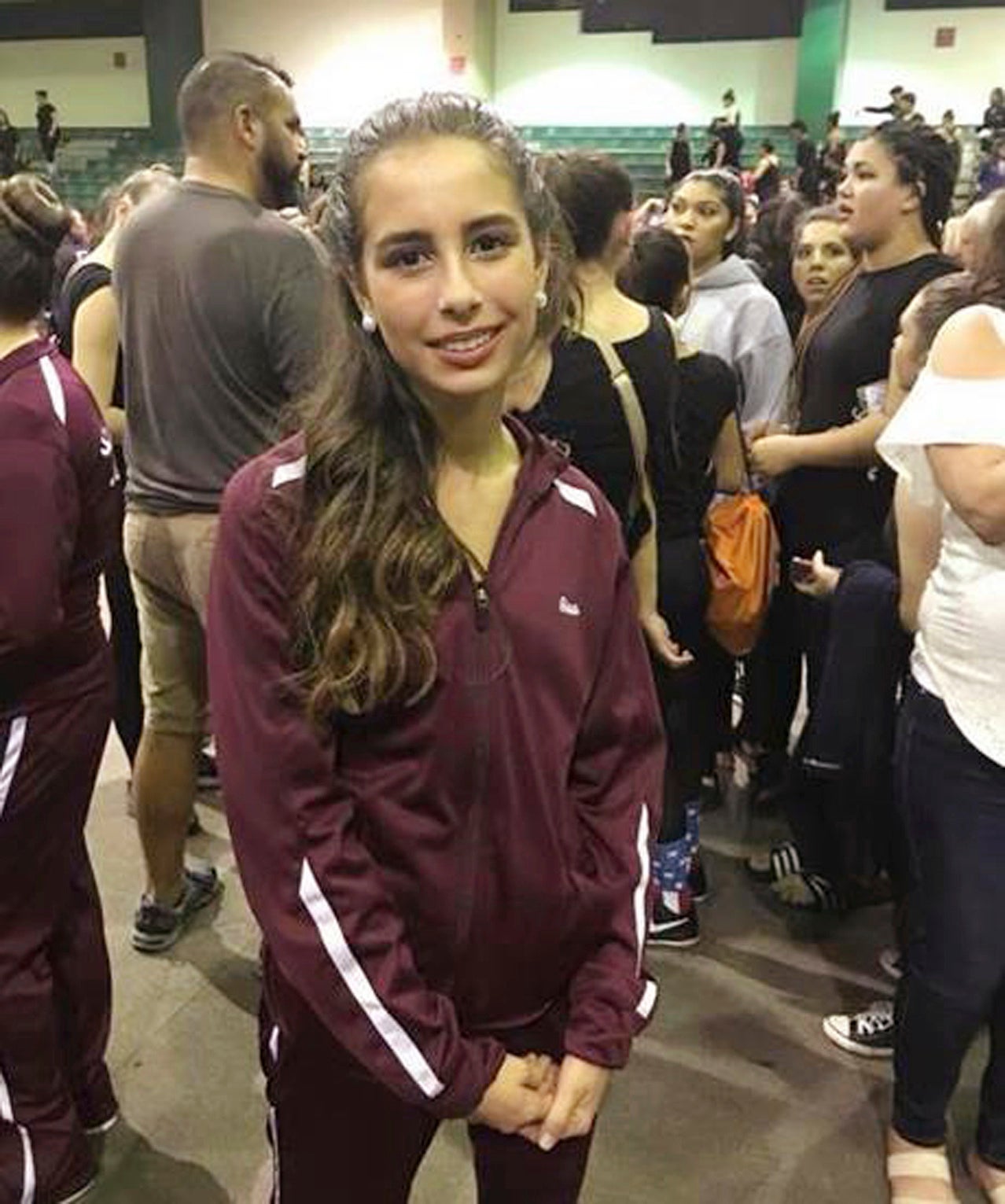
She was also an active member of her local church and loved volunteering to help others.
Her family said she loved to cook with her father and grandmother, go on shopping and spa days with her mother and enjoy “daredevil” activities such as rollercoasters, surfing, snorkeling and skiing with her “best buddy” and brother Anthony.
“Gina was known to all as an avid reader and a talented artist who illustrated for a local magazine. Once she told her mother that she loved books so much she wanted to live in a library,” the family said.
Gina’s passion for reading was memorialised earlier this year when the Parkland Library children’s wing was named for her.
Helena Ramsay
Helena Ramsay had dreams of studying overseas and travelling to see the pink dolphins in the Brazilian rainforest when she was killed trying to help her fellow students.
That morning, her mother Anne said she left a Valentine’s Day gift on her daughter’s bed for her to open when she came home from school. But she never returned.
The 17-year-old died after being struck by bullets fired into her classroom on the first floor.
Her best friend Samantha Grady – who was also wounded in the gunfire – told how Helena tried to protect her as they huddled behind a bookcase together, urging her to grab a book to use as a shield from the bullets.
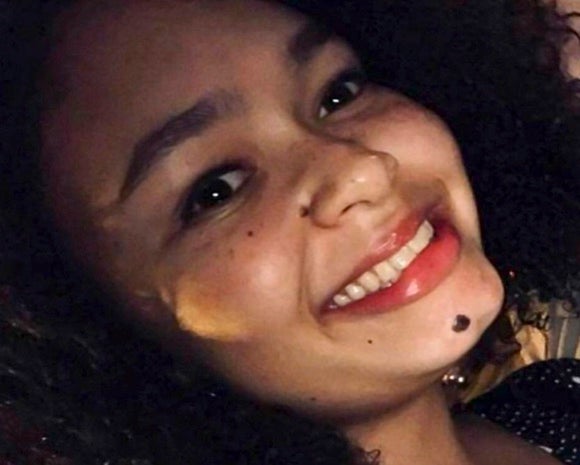
Helena was remembered as “very shy and private until you got to know her wonderful sense of humor and wicked wit” and as a teenager who cared deeply about issues such as inequality, discrimination and the environment, her family said at the time.
She was considering travelling to Europe for her studies and was interested in the possibility of working for the United Nations.
“Helena’s dreams would have led her on an adventure around the world, traveling to Europe with the possibility of study, listening to the K-Pop bands in South Korea, and an expedition to find the exquisite Pink Dolphins of the Amazon Forest,” her family said.
Jaime Guttenberg
Jaime Guttenberg was a 14-year-old freshman student remembered as a talented dancer and the “life of the party”.
She was killed as she tried to run from the gunman in the third floor hallway of the school building. Her older brother Jesse was also a student at the school at the time and survived the attack.
At a vigil the day after her murder, Jaime’s father Fred Guttenberg – who is now a prominent gun control advocate – said he didn’t know if he’d told his daughter he loved her that morning.
“In the morning sometimes things get so crazy, she runs out behind and she’s like, ‘I got to go, Dad, bye.’ And I don’t always get to say, ‘I love you’. I don’t remember if I said that to Jaime yesterday morning,” he said.
Dance was a huge part of Jaime’s life and she was a member of the Dance Theater Extreme Team, where she practised for 13 hours every week.
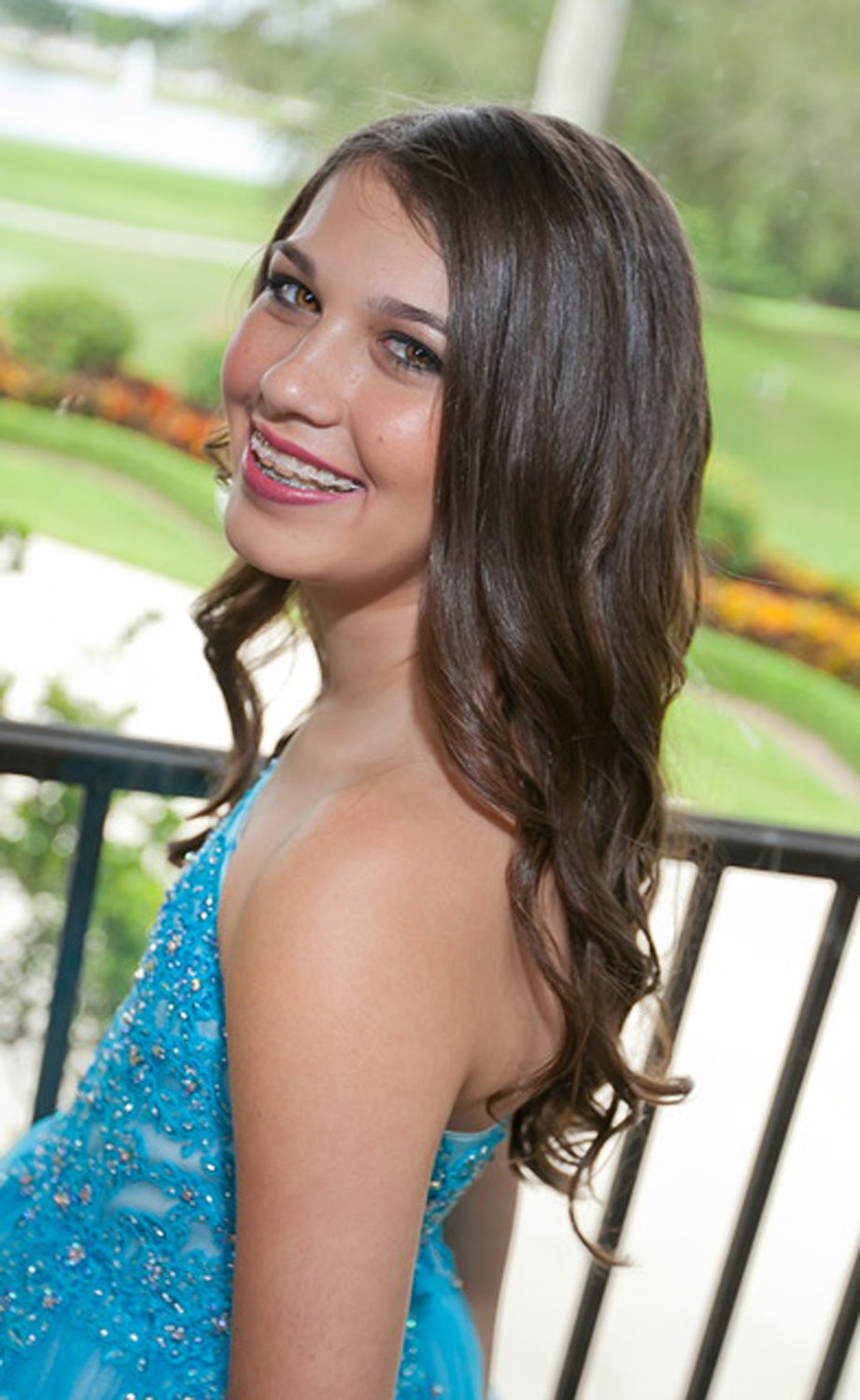
She once wrote about her passion for dance, writing: “I dance because it makes me feel possibilities are endless and limits don’t exist. Every time I leap, I feel as though I’ve touched the stars.”
While her main passion was dance, her family said she also dreamed of growing up to become an occupational therapist and a mother.
Following her death, she was remembered by her family as “a beautiful, smart, energetic, compassionate and funny 14 year old girl”. “We miss her laughter, her voice, her beauty and the energy that she always brought into every room that she entered,” her family said.
Joaquin Oliver
Joaquin Oliver, 17, was a talented writer and basketball player who is remembered as being “the most vibrant personality in every room”.
His father Manuel Oliver revealed that his son had spent extra time getting ready on Valentine’s Day 2018 and had bought flowers and a card to give to his girlfriend that day.
When he dropped Joaquin off at the school that morning, he told him to give him a call to let him know how it went with the flowers. His son never called.
Joaquin was shot dead as he tried to hide from the gunfire in the alcove to the men’s restroom on the third floor.
Known as “Juac”, Joaquin was born in Venezuela and moved to the US with his family when he was young. He was proud of his Venezuelan heritage and was known for his loyalty and drive to stand up for what was right.
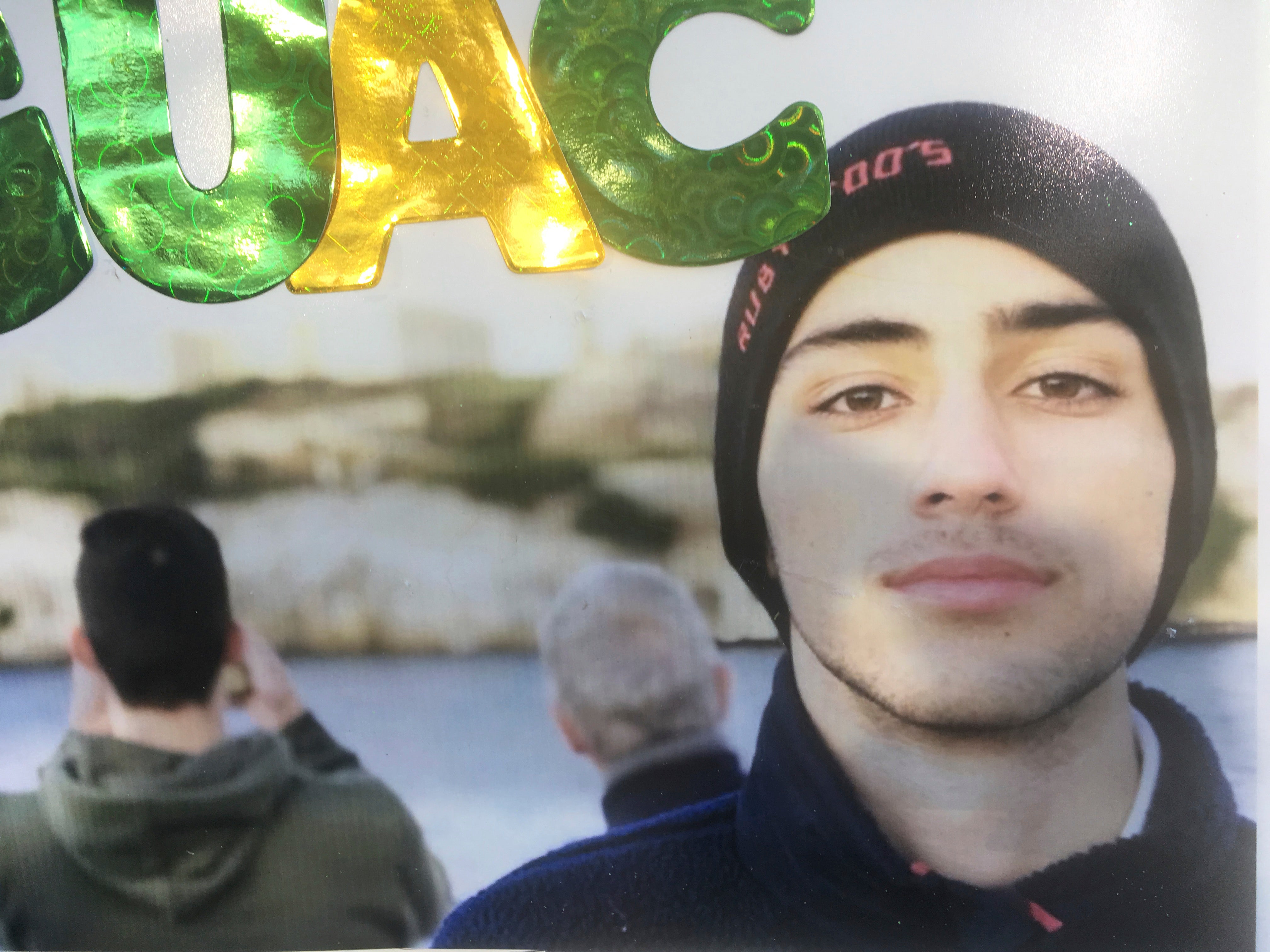
“The kid was an old soul that was able to have very deep conversations that he was caring about social issues,” his mother Patricia Oliver told NPR in October.
He loved to pen short stories and love poems, listen to hip-hop and play basketball. He was buried in NBA player Dwyane Wade’s jersey.
“He always did his best to be there for everyone and be the best friend and best boyfriend he could be,” his family said in a statement at the time. “Everywhere he went he touched someone’s heart and had a special bond with each and every one of them.”
Luke Hoyer
Luke Hoyer is remembered as a “quiet soul with a big heart” and a passion for playing basketball.
The 15-year-old was returning to his classroom on the first floor of the school building that day when he was shot and killed by the gunman.
His mother Gena Hoyer remembered how she dropped him off at school that morning and they both told each other they loved each other.
Luke, known by the affectionate nickname “Lukey Bear” to his family, was very close to his family, in particular his mother who he spent a lot of time with.
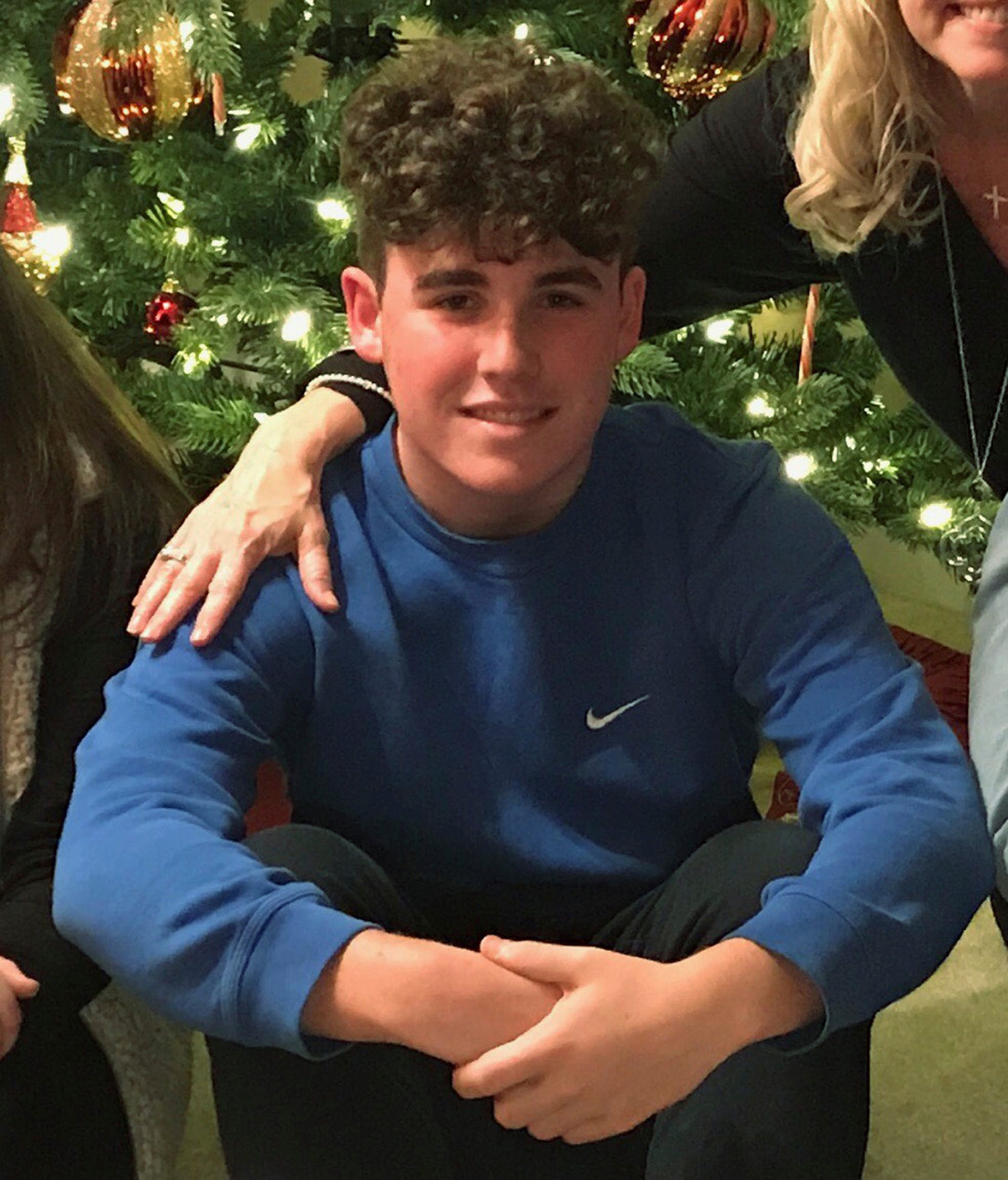
The teenager played basketball in the Parkland Basketball League and was a member of several travel basketball teams. He would often be found playing the sport with friends at his neighborhood court.
As well as basketball, he also loved playing football and eating chicken nuggets.
“Luke loved his family, his friends, his dogs, basketball, Clemson Football, family trips to South Carolina, family trips to the Jersey Shore, Miami Heat, Dwayne Wade and Chicken Nuggets,” his family said at the time.
“Luke led a simple and beautiful life. He didn’t need to say much, just having him around made the room feel warm and welcoming.”
Martin Duque Anguiano
Martin Duque Anguiano was a highly-decorated army cadet who had been looking forward to taking AP classes and dual enrollment college classes at the time of his death.
The 14-year-old was returning to his classroom on the first floor of the school building when he was shot and killed.
Born in Mexico, Martin spent his early years there before moving to the US with his parents and siblings.
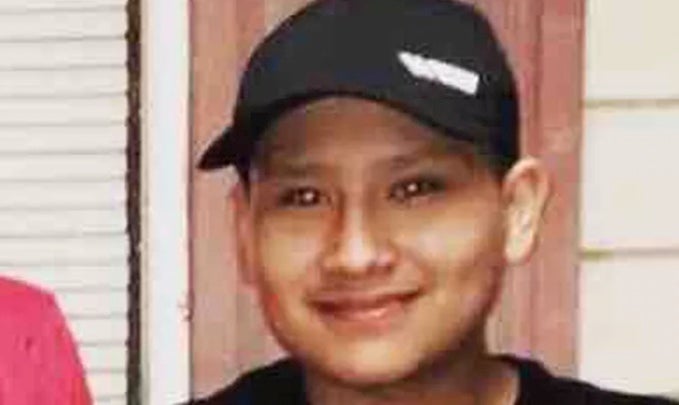
He was a member of the school’s Junior ROTC program and won many awards for his service as a cadet. He was awarded the US Army’s Medal of Heroism posthumously, with his family being presented with the honour at his funeral.
As well as his passion for the cadets, he was also committed to his studies and his faith, regularly attending church and praying every day. He also loved soccer, the FC Barcelona team and Star Wars.
At the time of his death, his older brother Miguel described his brother as a “very funny kid, outgoing but sometimes really quiet”. “He was sweet and caring and loved by everyone in his family. Most of all, he was my baby brother,” he said.
Meadow Pollack
Meadow Pollack was just months away from graduating from Marjory Stoneman and had been accepted to Lynn University in Boca Raton when she died.
Meadow was among the victims shot and killed in the hallway when the gunman reached the third floor.
The 18-year-old had tried to hide in the alcove of a classroom. Her body was found shielding another student.
As the youngest in a family of 10 grandchildren who all grew up together in Parkland, her loved ones described her as the “princess of the family”.
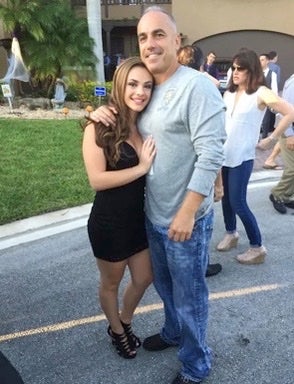
“While Meadow was small in stature, she had such strength and determination,” they said.
“She was a beautiful girl that loved everything pink and girly but also could get dirty outdoors.”
About to head off to college later that year, the 18-year-old dreamt of becoming an attorney. Those dreams are now being purused by her brother Hunter Pollack in her honour.
“Meadow was an ambitious girl, she always wanted to be a lawyer. When she died, I took the role on, went to law school myself,” he told Local10 this year.
Nicholas Dworet
Nicholas Dworet had dreams of becoming an Olympic swimmer and was just months from graduating when he was killed in the attack.
The 17-year-old was shot when the gunman opened fire on the classrooms on the first floor.
He would have celebrated his 18th birthday the following month – on the same day his fellow students held the March for Our Lives rally in Washington DC. Nicholas’s younger brother Alex was also shot in the rampage but survived.
As captain of the school swim team and district, regional and state swim champion, Nicholas had his sights set on swimming in the Tokyo 2020 summer Olympics.
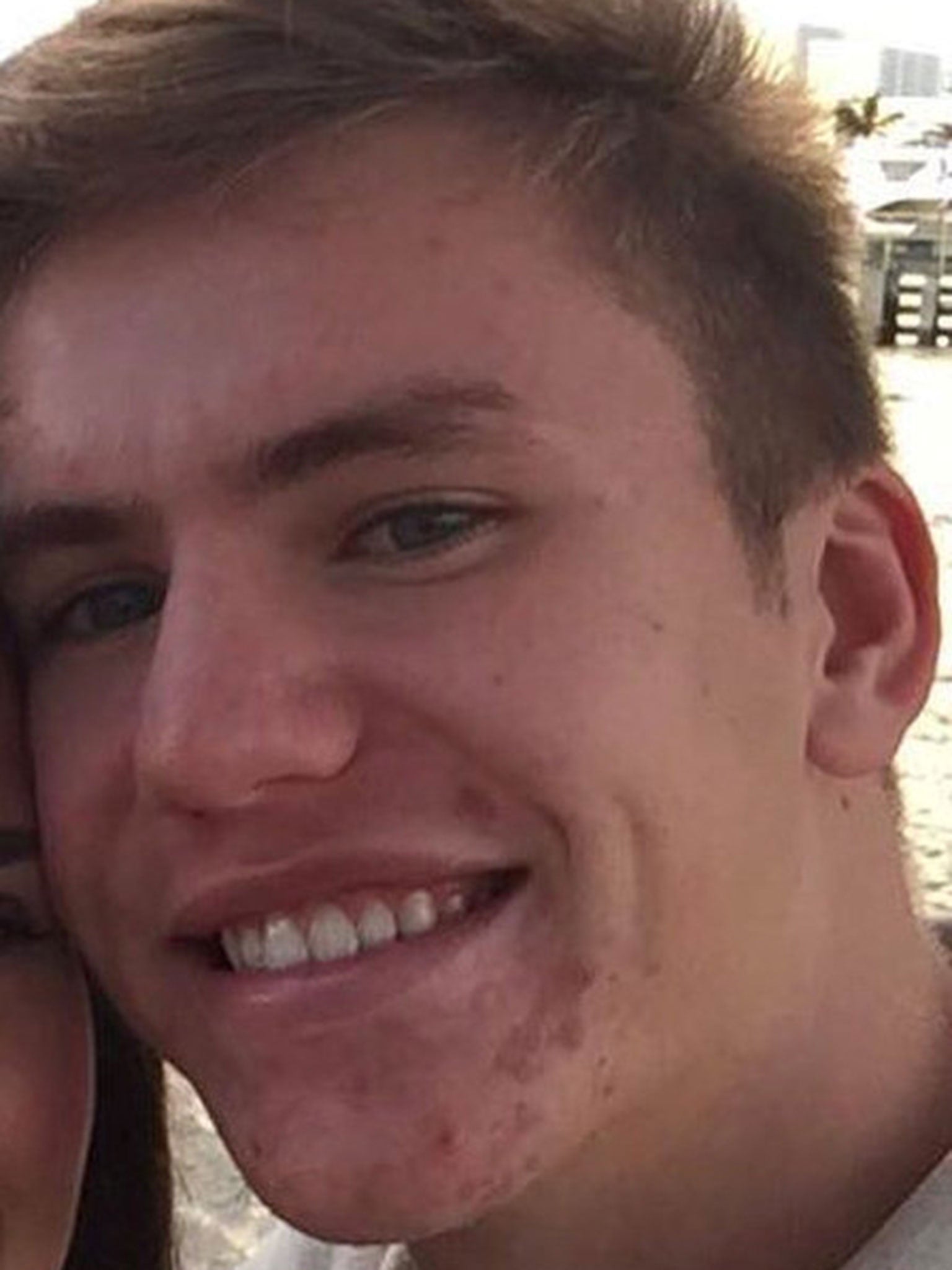
He had secured a scholarship to the University of Indianapolis later that year and had been selected by the school as a First Class graduating senior who excelled in academic achievement, character, community service, and athletic achievement.
“He was a happy young man full of joy and life,” his family said at the time. “He was extremely passionate about swimming. Nicholas was thrilled to be going to the University of Indianapolis to join their swim team.
“He dreamed of making the Olympic swim team and going to the 2020 Olympics in Tokyo. He believed he could accomplish anything as long as he tried his best.”
Scott Beigel
Scott Beigel, a 35-year-old geography and cross-country coach, died in the hallway of the third floor as he tried to save as many students as he could.
He had unlocked his classroom door and was ushering students into the safety of the room when the gunman emerged in the hallway and shot him multiple times.
One of his students Kelsey Friend called him her “hero” and said that he saved her life that day.
Scott’s parents Linda and Michael said that he loved working with and mentoring children and also loved summer camps, with teaching giving him the opportunity to pursue both passions.
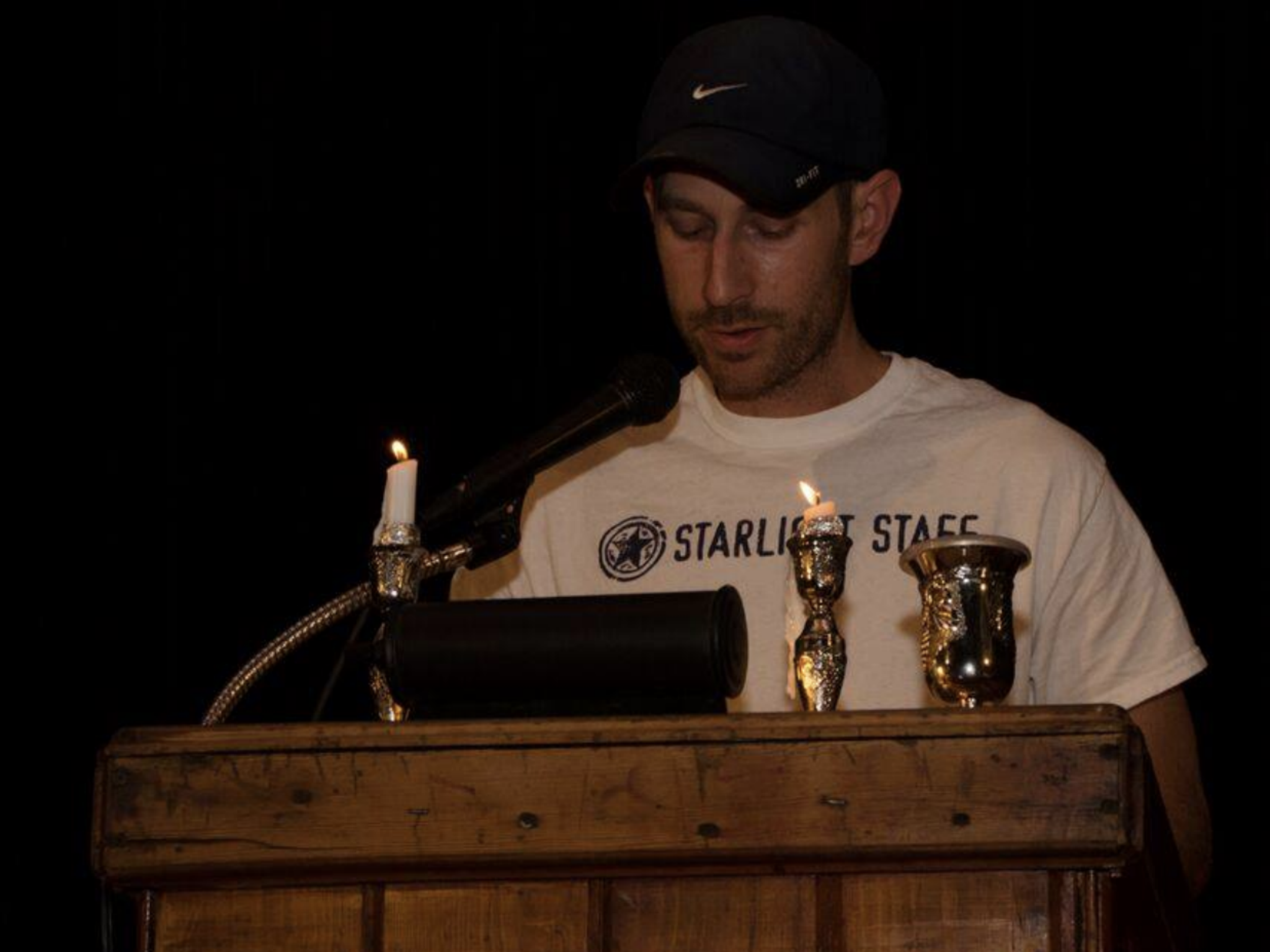
“Scott was a teacher, a coach, a camp counselor, a son, a grandson, a brother, an uncle, a nephew, a cousin, a friend and a hero,” the family said at the time.
“Scott was a very humble young man who never knew how much of an impact he had on others, especially children. Scott loved working with children.
“Teaching afforded him the ability to continue with one of his life’s passions, working at sleep away camp. Scott ultimately wanted to have a positive impact on every child, no matter how young or old, no matter what the issues.”
Before he became a teacher, he also did volunteer work in South Africa with underprivileged children.
Peter Wang
Peter Wang, 15, was an Army Junior Reserve Officer Training Corps (ROTC) cadet who had dreams of going to the US Military Academy at West Point and serving his country.
Peter’s mother Hui Wang told CBS News last year that he had gone to Marjory Stoneman Douglas High School just so that he could be a part of their Junior ROTC program.
He died wearing his Junior ROTC uniform as he tried to save the lives of others, holding a door open so that his fellow students could escape the gunfire.
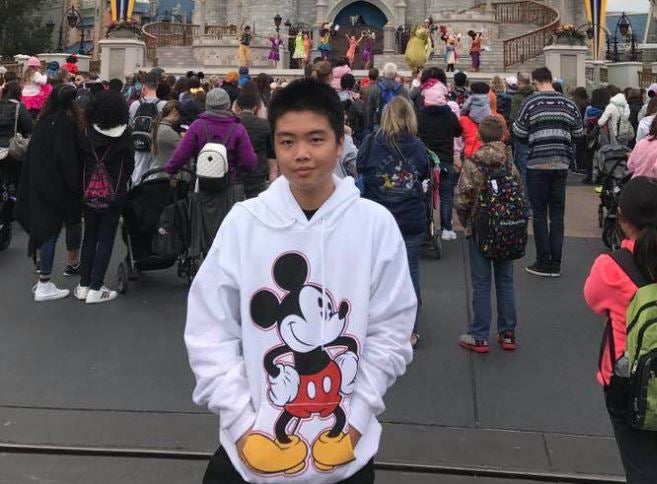
Ms Wang said her son “did something heroic, but people are quick to forget. As his mother, I’ll never forget.”
Peter was buried in his uniform and was posthumously admitted into West Point’s Class of 2025 one day later. West Point officials awarded him the US Army’s Medal of Heroism describing him as a “brave young man”.
Following his death, his mother found in his room plans for his life throughout his twenties.
“His sophomore year, his junior year... what college he dreamed of going to. He had his life planned out through his twenties,” she said.


